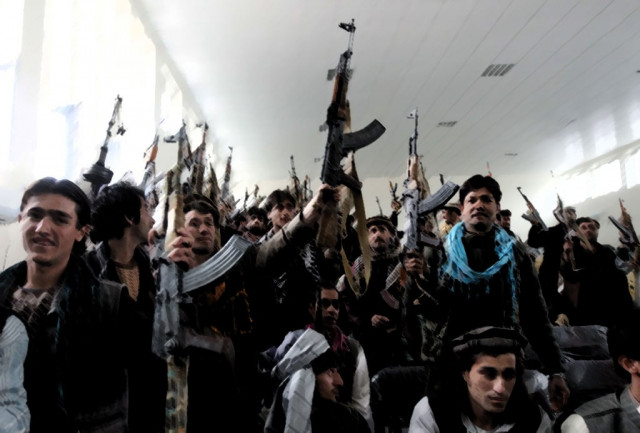Unveiling the Taliban: A western journalist’s perspective
Kathy Gannon, author of ‘I for Infidel’ shared nuanced insights about the demonised warlords at the book’s...

According to Gannon, the Taliban would have weakened by 2003 at the latest, because once poppy production was halted, the economy was hanging by a fragile thread. PHOTO: REUTERS/FILE
For Canadian journalist Kathy Gannon, who has spent much of her career in the dusty, volatile folds of Afghanistan, western narrative pouring in from the region about its bearded safe guarders and burqa-dotted landscape was not quite as nuanced as her own experience.
While the post-9/11 world may have been quick to label the Afghan Taliban as part of the axis of all evil, Gannon’s almost two-decade-long affair with the country was rich with revelations of the subtleties of a tribal group defined through circumstance. Her book ‘I for Infidel’ attempts to communicate this.
At a book review organised by the Asian Study Group (ASG) on Tuesday, Gannon’s account of Afghanistan as one of the longest-serving western journalists in the region left the audience with divergent impressions of the country. She factored geography and history in the larger picture as determinants of the stigma of evil and aggression that has come to mar the nation.

“I was in Afghanistan in 1986 when the Mujahedin were fighting the Soviets, and I knew people then who are now part of the government,” Gannon expressed to a keen audience of mostly ASG members and journalism students. She explained how Afghanistan, and inherently the Taliban, who rose to power in response to bitter, feuding warlords came into focus after 2001, and much of the history and struggle of the region before this period was whitewashed in order to justify the American invasion.
“The Taliban were simple, tribal men who had not studied Islam.” To validate this, the veteran journalist revealed personal exchanges on the frontlines with these men, who sometimes joked about her stubbornness and resilience in evoking matters of women’s empowerment and education, saying:
“You know what we call women like you? Men!”
Gannon related that while certain incidents such as the beheading of a woman during her public trial had come to define the Afghan persecution of women in general, the problem extended to its South Asian borders and was not as much a Taliban attitude but rather a general misinterpretation of religion.
“When Holbrooke visited in 1999, capturing Osama bin Laden or building schools and bringing women within the charter of negotiation were not on his agenda,” she explained, adding that the West was to blame for not identifying and weakening such forces within Afghanistan when it was opportune. To date, the West upheld a hypocritical alliance within Afghanistan, befriending some networks within a certain region and reprimanding them elsewhere, she added.
According to Gannon, the Taliban would have weakened by 2003 at the latest, because once poppy production was halted, the economy was hanging by a fragile thread. With the US and NATO drawdown making lip service globally, the Canadian journalist suggested that the Afghan climate was ripe with fear of ethnic persecution amid the various groups.
“There were 42 countries involved and billions of eyes watching in 2001, and the Afghans were hopeful about the money that was trickling in,” she shared, explaining that instead of lifting the Afghan spirit and finding a way to assimilate its ethno-religious groups including Pashtuns, Hazaras, Tajiks, Uzbeks and Arabs, the tension was further exacerbated and all accusatory fingers were pointed towards Hamid Karzai. Satiating the audience’s questions about the Pakistani Taliban, Gannon expressed that while Pakistan wanted to have a strong ally in Afghanistan, it would suffer greatly at the hands of an emboldened Taliban within Pakistan in case of a takeover across the border.
Published in The Express Tribune, January 16th, 2014.


















COMMENTS
Comments are moderated and generally will be posted if they are on-topic and not abusive.
For more information, please see our Comments FAQ